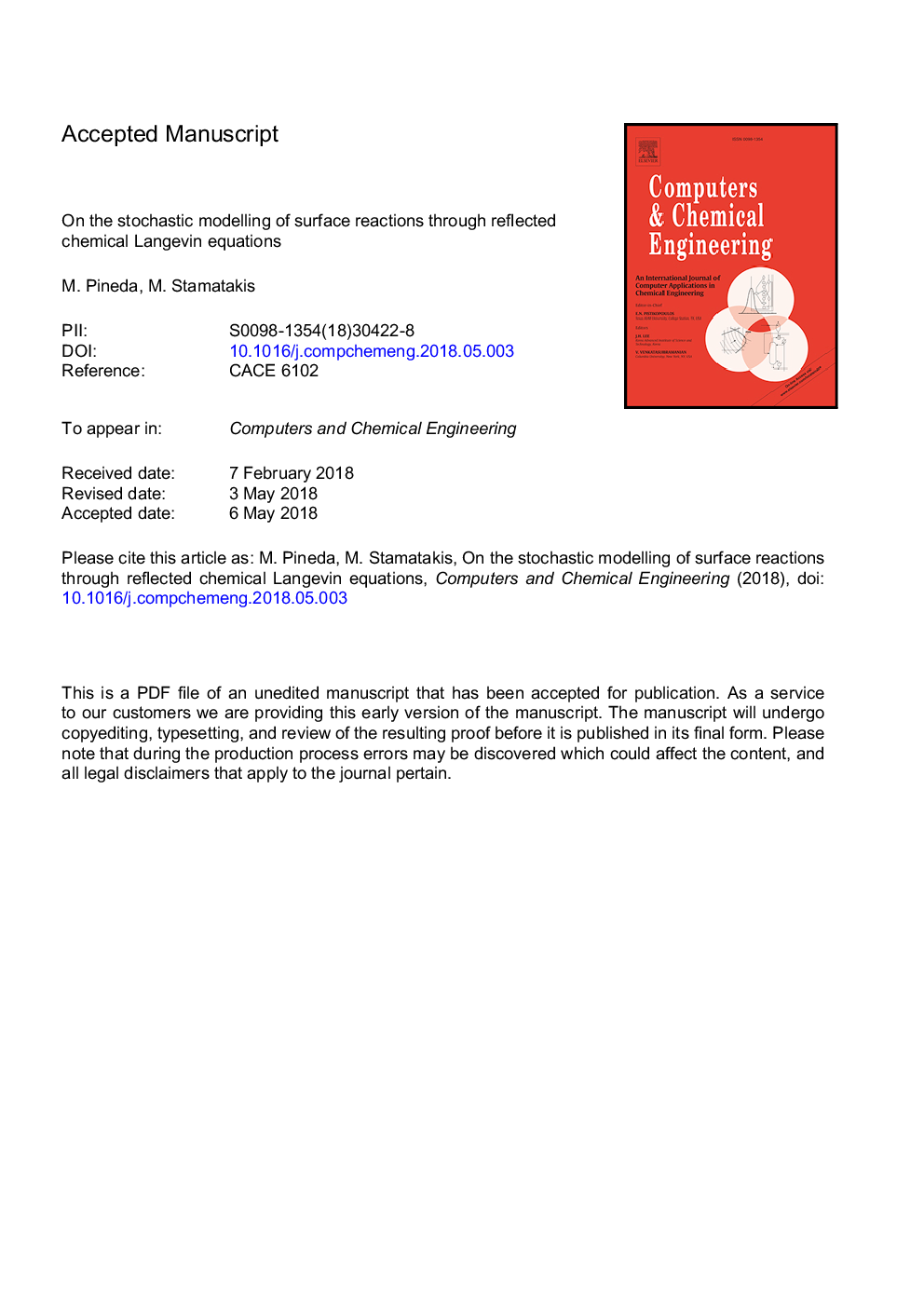| Article ID | Journal | Published Year | Pages | File Type |
|---|---|---|---|---|
| 6594667 | Computers & Chemical Engineering | 2018 | 41 Pages |
Abstract
Modelling of small-scale heterogeneous catalytic systems with master equations captures the impact of molecular noise, but can be computationally expensive. On the other hand, the chemical Fokker-Planck approximation offers an excellent alternative from an efficiency perspective. The Langevin equation can generate stochastic realisations of the Fokker-Planck equation; yet, these realisations may violate the conditions 0â¯â¤â¯Î¸â¯â¤â¯1 (where θ is surface coverage). In this work, we adopt Skorokhod's formulations to impose reflective boundaries that remedy this issue. We demonstrate the approach on a simple system involving a single species and describing adsorption, desorption, reaction and diffusion processes on a lattice. We compare different numerical schemes for the solution of the resulting reflected Langevin equation and calculate rates of convergence. Our benchmarks should guide the choice of appropriate numerical methods for the accurate and efficient simulation of chemical systems in the catalysis field.
Keywords
Related Topics
Physical Sciences and Engineering
Chemical Engineering
Chemical Engineering (General)
Authors
M. Pineda, M. Stamatakis,
